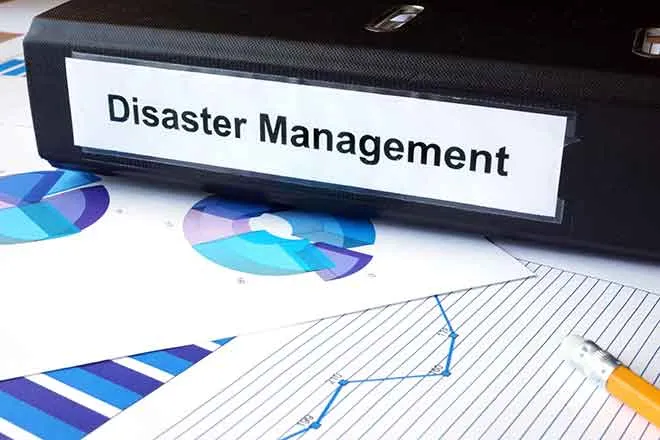
Happy holidays for all? Dealing with holiday depression, anxiety and stress
As the end of the year comes around, we hear constant reminders telling us we should be happy: “Merry Christmas,” “Happy Holidays,” “Happy New Year!” With great upbeat music it really is a time that can lift spirits.
Unfortunately, for some, all the music and traditions that add joy can actually trigger feelings of holiday depression, anxiety and stress. Anyone can be affected at any age.
People can experience stress over increased expenses, a packed schedule of holiday events, or unrealistic expectations to buy perfect gifts or plan perfect parties, the passing of a loved one, or family conflict that has resulted in estrangement.
What Can I Do to Deal with Holiday Depression, Anxiety, or Stress?
The National Alliance on Mental Illness (https://www.nami.org/Blogs/NAMIBlog/December-2017/Managing-Your-Mental-Health-During-the-Holidays) outlines ways to manage increased levels of sadness, stress and anxiety:
1) Take advantage of therapy - If you’re in therapy do not cancel scheduled therapy sessions. If you have not yet taken advantage of therapy, this may be a good time to arrange for it.
2) Practice mindfulness/meditation - Some guided meditations for beginners can be found at:
https://msw.usc.edu/mindful-living-resources/
3) Don’t rely on drugs and alcohol - While the prospect of escape can be appealing, substance use can ultimately worsen your issues.
4) Soak up the sun - In the winter months seasonal affective disorder is common. Exposure to bright lights, including fluorescent lights, can help ease symptoms…walking outside in the sun can be an effective centering and calming tool.
5) Set realistic expectations - Examining accomplishments from the past year can contribute for some who may experience negative feelings over not being at the place they feel they ‘should be’ in life. Get yourself out of this space by adjusting expectations and setting realistic goals. For example, if you’re trying to establish an exercise routine, try setting a goal of taking a walk three times a week rather than vowing to do CrossFit every day.”
How Can I Help A Loved One?
If you know someone who is experiencing holiday depression, anxiety or stress, it can be difficult to understand why he or she can’t just get over it. Let me assure you, telling them to suck it up and get over it never goes well! In her 2018 article, Leslie Barrie shares tips from psychologist, Dr. Kristen Wynns, on how you can help a loved one (https://www.wellandgood.com/good-advice/family-depressionholidays/):
1) Bring it up the right way - Depression is a difficult topic to address, and it may be easier to dance around the issue and pretent that everything is fine—but for the sake of your loved one, you’re going to want to find a way to talk about it. However, barging in with the announcement that you think they are depressed will most likely put them on the defensive…it’s a good idea to express concern about specific behavior changes. An example: “I’m concerned about how you’re doing. You weren’t feeling up for our holiday dinner, and you usualy like to help make cookies, but you mentioned you didn’t have energy for that this year—so I’m worried about you.”
2) Offer help any way you can - It’s very important to show your loved one they’re not alone. You can offer to schedule a therapy appointment, watch some informational videos or listen to podcasts about mental health.
3) Stay away from judgement - One thing you shouldn’t do is try to ‘talk’ someone out of their depression. People should accept the feelings their family members have rather than saying things like “You could have it worse,” or “It’s not that bad.” They’re actually critiques and judgements of the person, which aren’t productive of helpful.” Instead, you’ll want to be open and nonjudgmental - it’s not your job to approve or disapprove of how they feel (no matter how much it may upset you). Show how you understand where they’re coming from by using the language they use to talk about their feelings. For example, if they tell you they’ve been feeling really down, you could reply, “I’m so sorry you’re feeling down lately and going through this.”
4) Avoid an argument - One important thing to remember: Depression affects thinking. So you may face some pushback from your family member (“There’s no point—this isn’t going to get better,”) that might seem irrational to you. Don’t let it deter you from asking suggestions and offering help and support. But try to do whatever you can not to argue about the situation, which won’t get you—or your loved one—anywhere. Instead, find a solution that will lead to some sort of action. The goal is to be the family member who is moving the process forward…You could even say, “I know you don’t want to do it, but let’s just do it for me—humor me,”…They may feel obligated to do you the favor.
5) Address how serious the issue is - If things seem especially bad, you should ask if they’ve had suicidal thoughts or considered self-harm. Some family members are afraid of asking, because they’re worried they’ll plant those seeds, but we know that’s not the case—if your loved one hasn’t thought about it, you won’t be giving them the idea. If they’re resistant to seeing a professional and you have serious concerns that they’re suicidal, there are times when someone needs to take drastic action and call 911, or drive their loved one to the hospital. Your family member may be mad at you for it, but it’s worth it for them to be alive…
6) In the future, check in early - If you know, say, that your mom or brother is particularly vulnerable around the holidays, talk with them a month or two beforehand about how they’re feeling, It’s better to talk to them frequently in the beginning of the season, rather than wait until they’re really struggling.”
















